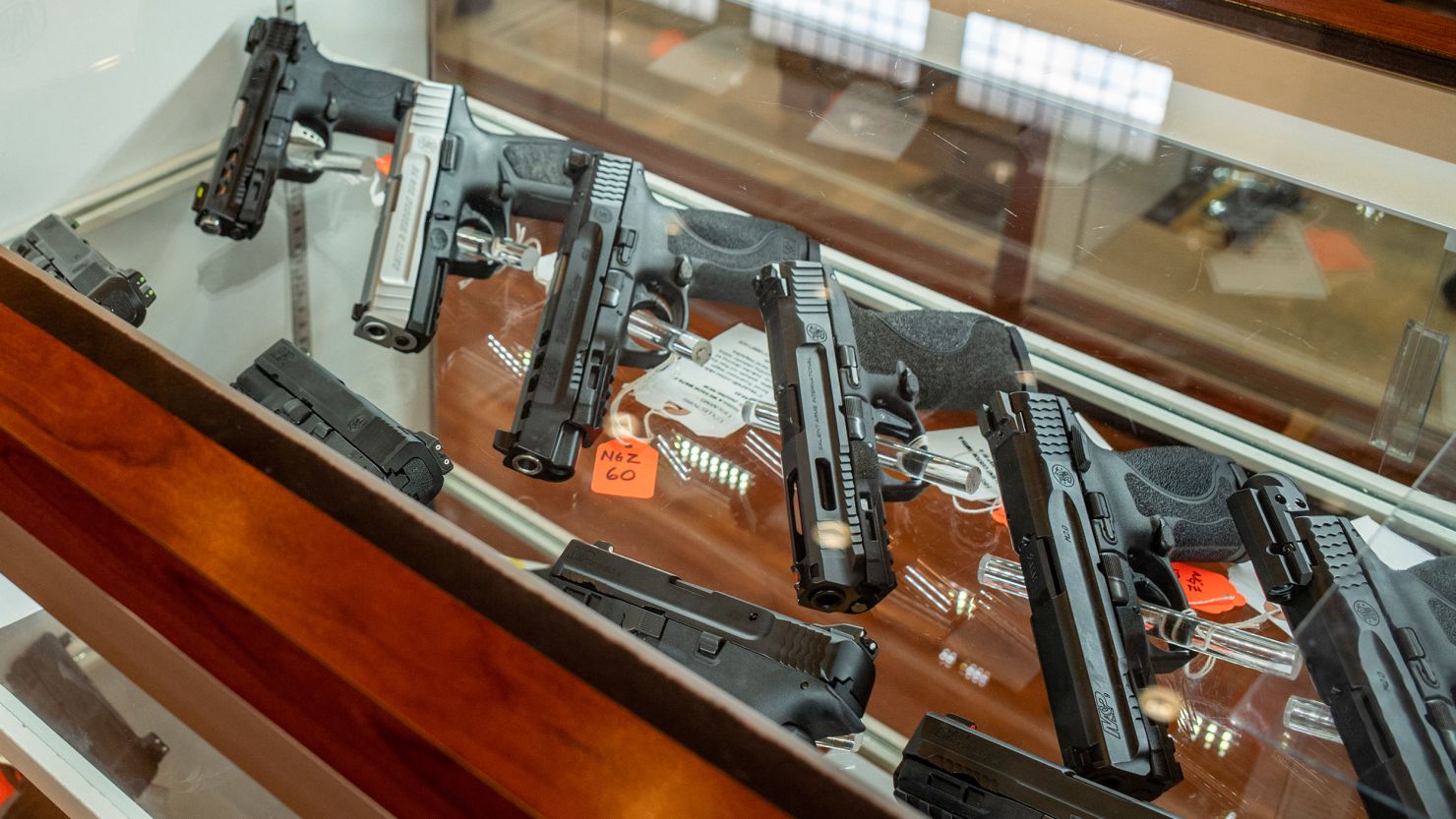Editor’s Note: Jill Filipovic is a journalist based in New York and author of the book “OK Boomer, Let’s Talk: How My Generation Got Left Behind.” Follow her on Twitter. The opinions expressed in this commentary are solely her own. View more opinion on CNN.
The 5th US Circuit Court of Appeals has handed domestic abusers a win — and made it easier for their violence to turn deadly.
The court held in United States v. Rahimi that a federal law banning those with domestic abuse restraining orders from gun ownership was unconstitutional. The 5th Circuit’s reach spans Louisiana, Texas and Mississippi, which means that a common-sense federal law that makes it harder for violent partners and exes to get their hands on guns no longer applies in these three states.

The court’s reasoning is that the law doesn’t pass the Bruen test (set forth a 6-3 majority decision in New York State Rifle & Pistol Association v. Bruen in 2022), which says that any modern law has to be more or less in line with laws and regulations in place since the Constitution was written in the late 18th century. And if the law seeks to address a long-standing problem but there’s not sufficient historical evidence of gun regulations to address that problem, the law can be struck down.
The Constitution was written at a time in which women existed under the legal control of their husbands or fathers, could not vote, could rarely own property and were excluded from the Constitution itself. Those who were enslaved in America were deemed legally less than persons and also excluded from the Constitution’s rights and protections.
Oh, and at the time the Constitution was written, it was legal to beat your wife. It was only in 1871 that two states made it illegal.
That alone should demonstrate how thoroughly absurd this standard is, and how deranged “originalist” legal theories have become. Domestic violence was also an issue in the 1780s. But because women were not respected or considered full citizens at the time the Constitution was penned and for many decades after, the men in charge (including men who owned and raped enslaved women) didn’t pass laws restricting abusive men from gun ownership — or restricting abusive men from just about anything.
Is it really possible that the Founders believed 18th century norms should apply more than 200 years later and that future lawmakers should be constrained by centuries-old legislation (or lack thereof)? In the 1780s, it would have been nearly impossible to imagine that women might have the rights they do today and that gender roles would be so transformed. It would have also been difficult to imagine the kind of weaponry now available for purchase in the United States, and the broad devastation that it would cause.
Yet here we are, being held hostage to truly reactionary interpretations of American law and history, one that does indeed set women back centuries. And we have a right-wing 5th Circuit, and a reactionary and conservative Supreme Court, to blame.
There are other ways to prevent domestic abusers from acquiring firearms, including if they are convicted of a felony. But felony domestic violence convictions are rare. Domestic violence overwhelmingly goes unreported; when it is reported, it’s mostly charged as a misdemeanor, and even those cases routinely fail to end in conviction.
In Louisiana, for example — a state now bound by the 5th Circuit’s ruling — the prosecutor’s office in New Orleans dropped nearly 90% of misdemeanor domestic violence cases in 2018 and 2019, and only secured convictions in about 6%, compared with a 25% conviction rate more broadly.
According to a federal crime victimization survey, almost 1 million American women experienced domestic violence in 2021, and more than 1 in 3 will experience it in her lifetime, according to a 2010 report by the US Centers for Disease Control and Prevention.
Of the nearly 5,000 women killed in the US in 2021, more than a third were killed by an intimate partner. And having a gun in the house increases the chance of a man killing his partner 41-fold, according to a 2003 study published in the American Journal of Public Health; the same study found that the data suggested “that abusers who possess guns tend to inflict the most severe abuse.”
There’s a good chance that the Supreme Court will take up this case, given that the 5th Circuit has struck down a federal law, creating an inconsistency in its application nationally. And if the high court continues its pattern of striking down even the most minor and common-sense gun regulations, American women will be even less safe than we already are in country so wracked by gun violence.
If this case does go to the Supreme Court, the results will be quite telling, especially coming on the heels of Dobbs v. Jackson Women’s Health Organization, which ended the era of legal abortion in the United States. In that opinion, Justice Samuel Alito suggested that he and the abortion opponents he sided with were defending “life.”
If the court sides with the 5th Circuit in this case and allows domestic abusers access to deadly weapons, it will send a clear message to American women: It’s not about being “pro-life.” It truly is simply about restoring male power and not caring when women suffer the consequences.


